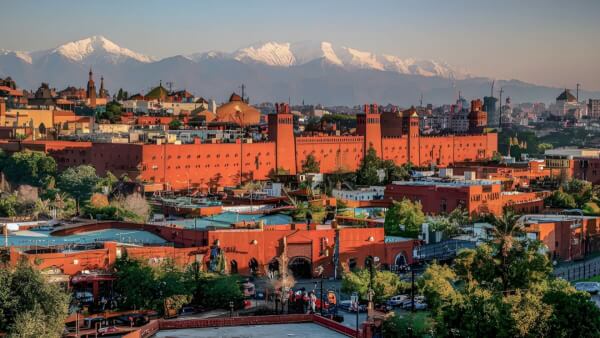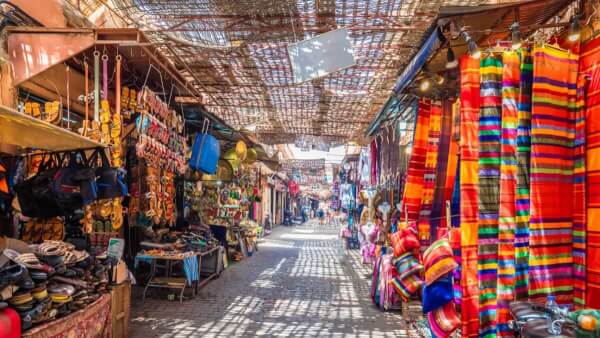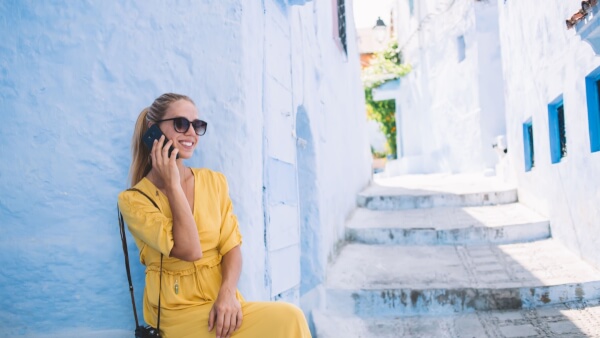Cash or card in Morocco: Which is the best way to pay?
Should you pay with cash or card in Morocco? A handy guide including cash etiquette, Moroccan ATMs and using your UK card.

Morocco’s culture and history makes it a prime destination for tourists. It has been described as the gateway to Africa and is full of vibrant marketplaces, ancient cities, and sweeping deserts. But before you go on a Moroccan adventure, ensure that you get the proper vaccinations to stay healthy on your trip abroad. This guide can help you navigate the immunisation process.
Immunisation is an overall process of making your body resistant to a specific infectious disease or virus. It builds up your body’s natural defence system - your immune system - to become resistant. The most common way to immunise yourself is with a shot, or injection, which usually contains a vaccine. The vaccine usually contains an agent that resembles the disease, so your body might react to it in the same way it would after exposure to the disease. This is your body’s immune system responding to and recognising the disease so you become resilient in the future.
Different diseases have different immunisation requirements. Some require more than one vaccine shot, and some immunisation cycles last longer than others. For example, it’s common for people to get a flu shot every year, while the yellow fever vaccination lasts 10 years.
Getting vaccinated is incredibly important when you’re travelling to a new country or region of the world. Many take it for granted that we don’t encounter many infectious diseases these days as a global population. This is because vaccines have helped eradicate many dangerous diseases and have saved thousands of lives over the course of the past 100-150 years.
When you visit a new place, this means your body will be exposed to new biological elements, germs and bacteria. You may not be resilient and you could become very sick if you aren’t immunised.
Recognising the effectiveness of vaccines and the threat of many of these infectious diseases, governments across the world began to recommend or even mandate certain vaccinations for citizens and visitors. This has helped to mitigate the spread of diseases in modern history.
There haven’t been any recent disease or virus outbreaks in Morocco that travellers should be concerned about. However, nearby countries in west and northwest Africa have a high risk of Zika virus, which is a virus carried by mosquitoes that causes severe birth defects.
Morocco wasn’t affected, but other western and northwestern African countries were affected by the 2014 Ebola virus, which is transmitted through animal and human fluids. There’s a low-to-no risk of contracting Ebola while in Morocco, but it's good for travellers to be aware of its history in the region.
You should check with your doctor four to six weeks in advance of your trip to ensure you’re up-to-date on all of your routine vaccinations, like mumps-measles-rubella (MMR). There may be some other vaccinations to consider. You can use the table below to help you.
Here’s a list of recommended vaccines that travellers should consider getting before they go to Morocco:
| Disease/vaccine | Vaccine required? | Recommended For... | Reason |
|---|---|---|---|
| Measles - mumps - rubella (MMR) | No | All travellers | This is a routine vaccination you should get before visiting any country. |
| Diphtheria - tetanus - pertussis vaccine | No | All travellers | This is a routine vaccination you should get before visiting any country. |
| Varicella (chickenpox) vaccine | No | All travellers | This is a routine vaccination you should get before visiting any country. |
| Polio vaccine | No | All travellers | This is a routine vaccination you should get before visiting any country. |
| Hepatitis A | No | Most travellers | You can contract hepatitis A through contaminated food or water in many different countries |
| Typhoid | No | Most travellers, especially those staying with friends or relatives in small towns or rural areas. Travellers who are “adventurous eaters” should also consider this vaccine. | You can contract typhoid through contaminated food or water in many different countries. |
| Hepatitis B | No | Travellers who may have a new sexual partner or have a procedure involving needles (tattoos, piercing, etc.) | You can contract hepatitis B through sexual contact, contaminated needles, and blood products. |
| Rabies | No | Travellers involved in outdoor and other activities or those working closely with animals | Rabies can be found in several types of mammals in Morocco. |
Morocco doesn’t have a high risk for diseases and viruses transmitted through mosquitoes, so travellers don’t have to worry about avoiding hot and rainy seasons. However, as a tourist wanting to make the most out of Morocco, you might want to travel in the spring when temperatures are moderate. That way, you can comfortably experience Morocco’s plentiful outdoor activities.
The emergency ambulance number in Morocco is 150. Here is more information about what to do in an emergency for different travellers:
If you’re planning a visit to Morocco to experience the country’s exotic marketplaces, unique African-Arabic history, and delicious local cuisine, you might want to prepare for your trip by getting your routine vaccinations so you can stay healthy. Use this guide to help you understand the vaccination process before you depart.
*Please see terms of use and product availability for your region or visit Wise fees and pricing for the most up to date pricing and fee information.
This publication is provided for general information purposes and does not constitute legal, tax or other professional advice from Wise Payments Limited or its subsidiaries and its affiliates, and it is not intended as a substitute for obtaining advice from a financial advisor or any other professional.
We make no representations, warranties or guarantees, whether expressed or implied, that the content in the publication is accurate, complete or up to date.

Should you pay with cash or card in Morocco? A handy guide including cash etiquette, Moroccan ATMs and using your UK card.

Can I use Revolut in Morocco? A handy guide covering using your Revolut card and account in Morocco, spending in MAD and more.

Check out our in-depth guide on everything you need to know about buying a prepaid Morocco SIM card, including different providers, pricing, and features.

Check out our handy guide to using PayPal in Morocco, including what fees you can expect.

Check out our handy guide to using your Monzo card and account in Morocco, including what fees you can expect.

Welcome to Morocco, the land of the setting sun and an enthralling blend of captivating cultures, enchanting landscapes, and delicious cuisine! From the...